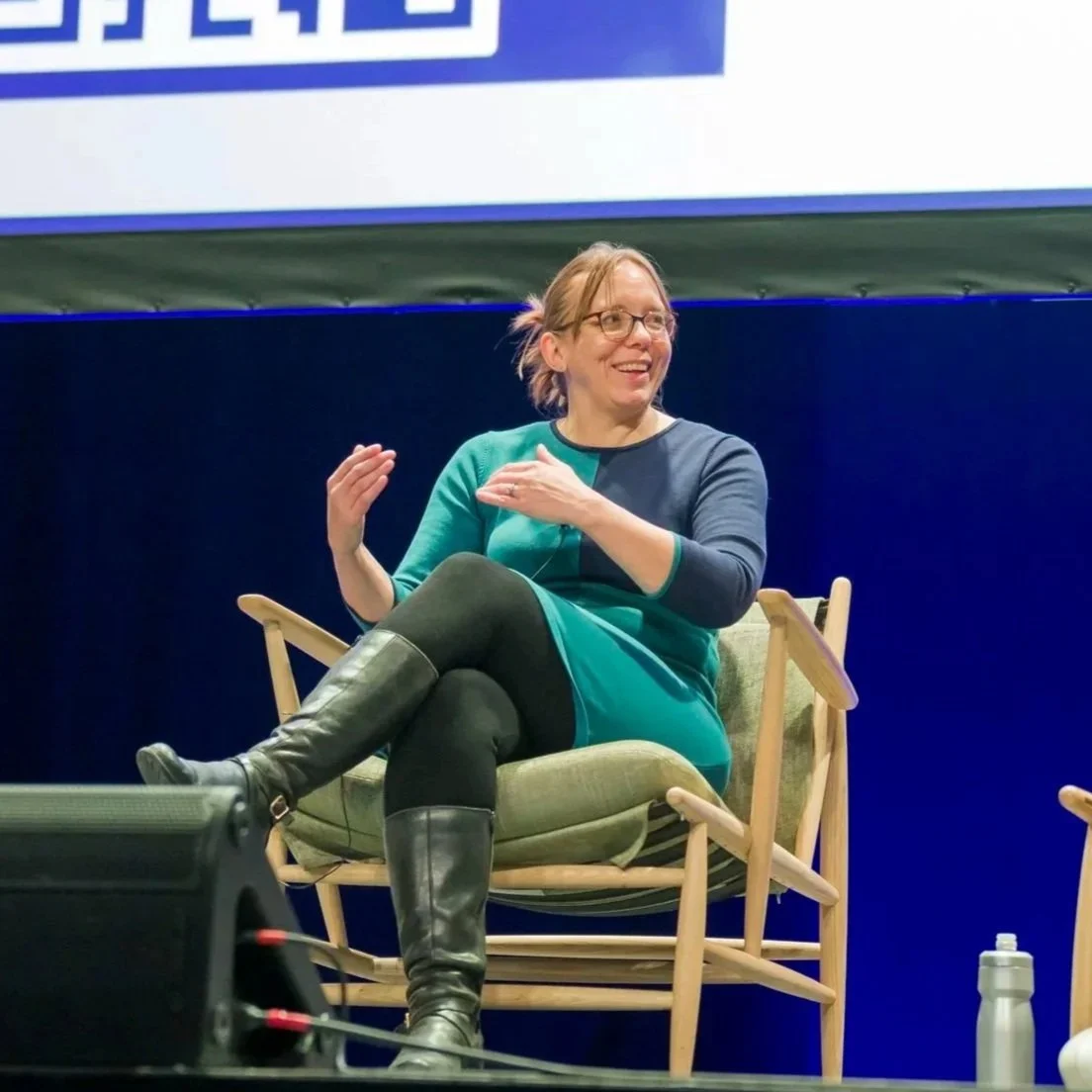An Evening Exploring Aging
On Thursday 23rd October, we spent the evening at the Warwick Arts Centre exploring the question – what does it mean to get older?
In a first of its kind Resonate event, we were joined on campus by University of Warwick academics, community organisations and partners, and guest speaker – internationally best-selling author Carl Honoré – to be part of the conversation around this important topic and reflect on the current research in this space.
At this event, we had the privilege of working with the School of Law and Department of Sociology (as part of ongoing work from the Violence and Social Justice Research Cluster and the Centre for Critical Legal Studies) to host the premier of the exhibition “Timing Out: Creative Reflections on Prison Life”. This exhibition, presenting visual art, music and poetry created by men serving very long sentences in a high-security prison in England, considered how life unfolds within constrained horizons of time and within controlled spaces.
The works questioned how growing up or growing older behind bars reshape one’s sense of self, perception of time and their sense of belonging. In collaboration with the community and artists behind the Beauty out of Ashes project, the exhibition team were also able to host three beds from the now demolished HMP Holloway. The beds (and associated prison bedding, objects, and cutlery) animated for the audience key aspects around the material and embodied reality of incarceration.
For those who would like to read more about the project and works, there is a digital copy of the exhibition booklet available at the end of this blog.
Also in the foyer, were opportunities for fascinating conversations with researchers from the History of Medicine and with local community projects Coventry Good Neighbours (who connect over 50s to befrienders, building positive relationships across Coventry) and Memory Lane Café (a student led group offering a supportive and welcoming environment for members of the community living with dementia and their family/carers). Researchers also shared sources and materials that explored how the ageing body was understood and experienced historically compared to the modern day, as well as how the Books of Homilies - a text created to instruct and inform its audience on religious models of behaviour - sheds light on how disability and infirmity were represented.
From 7pm, many joined us in the theatre for a series of talks. The evening was opened by Carl Honoré – an award-winning writer, broadcaster and speaker who drew on the latest science, personal experience and case studies from around the world, to explore the idea of embracing aging as an adventure. Amongst this, Carl also had an important message for us to consider and challenge the language used when we discuss ageing.
We then had the opportunity to share the latest research from the University of Warwick, looking at ageing across a range of disciplines. Firstly, Professor Philip Taylor from the Institute of Employment Research highlighted the importance and challenges of redesigning work for an ageing society. We were then introduced to the topic of Positive Psychology by Dr Luke Hodson (Department of Psychology), who highlighted how many of the ‘boring’ elements of our every day life can have an impact on our wellbeing and successful ageing. Finally, Dr Cathy Slack from the School of Life Sciences showcased how her lab use a surprising model, the fruit fly, to understand what genetic changes happen as a fundamental part of ageing and how this could improve our ‘Healthspan’ – staying healthier for longer.
After introductions to all the research above, we passed the microphone to our attendees to share their thoughts, comments and questions for the speakers - prompting discussions on topics such as retirement, happiness, equality and how to find out more about living well.
Dr Cathy Slack also shared on the night that a lot of additional information is available from the British Society for Research on Ageing, including a Public Seminar Series.
We’re so grateful to all the people who brought their expertise to this discussion - from the audience, community organisations and speakers, it was a privilege to host a space to talk about this important topic. As always, we read every piece of feedback we receive, and appreciate all of those who took the time to share their thoughts.
We look forward to seeing you all at the next Resonate Late!
With thanks to Photographer Jamie Gray
Timing Out: Exhibition Booklet
Please note that these creative outputs cover sensitive and potentially re-traumatising subjects including those of oppression, marginalisation, structural and interpersonal violence, crime and confinement.












